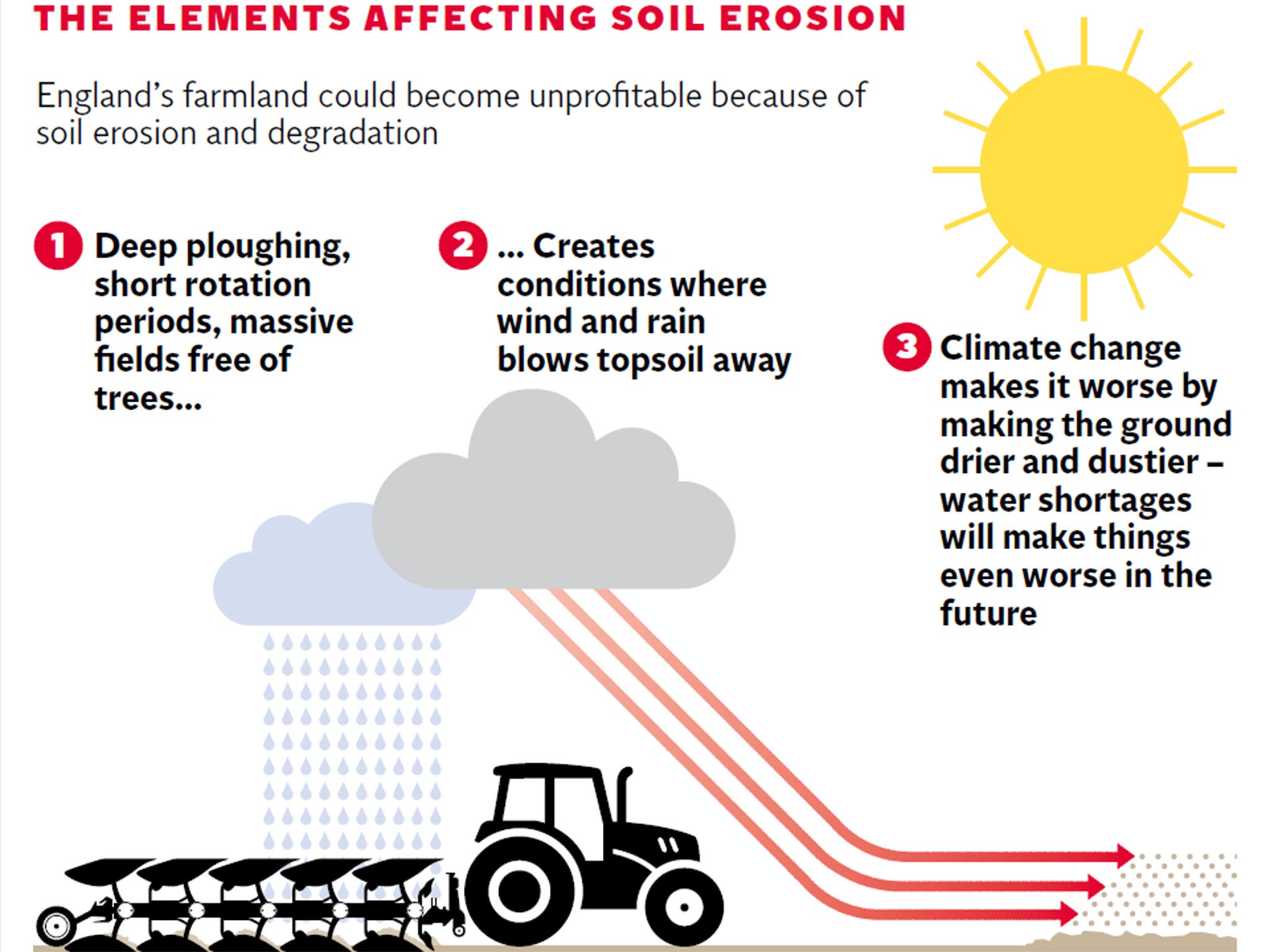Soil erosion a major threat to Britain's food supply, says Government advisory group
The Committee on Climate Change (CCC) report says the UK will be in danger of producing less food in the coming decades

Large areas of farmland in the east of England could become unprofitable within a generation as soil erosion and degradation make it less productive, according to the Government’s official climate change advisory group.
The Committee on Climate Change (CCC) report says the UK will be in danger of producing less food in the coming decades, when it should be producing more.
The degradation is the result of increasingly intense farming practices, with deep ploughing, rapid crop-rotation and ever-larger fields free of trees allowing the wind and rain to carry away the top layer of soil, according to the report. Farmland around the East Anglian Fens could become less productive and less profitable, forcing the country to increase food imports at a time of growing global demand and rising prices, it says.
Britain’s soil quality has already been damaged. The country has lost 84 per cent of its fertile topsoil since 1850, with the erosion continuing at a rate of 1cm to 3cm a year.

Farmers have been able to improve yields through technological advances, but it is only a matter of time before productivity decreases, experts say.
“Soil is a very important resource which we have been very carefree with. At the moment we are treating our agricultural soils as though they are a mined resource – that we can deplete – rather than a stewarded resource that we have to maintain for the long-term future,” said Lord Krebs, chairman of the CCC’s adaptation sub-committee.
And climate change is set to make matters worse by increasing temperatures and water shortages that make the soil dustier, as well as the frequency of heavy rainstorms, which wash it away.
“The most fertile topsoils in the east of England – where 25 per cent of our potatoes and 30 per cent of our vegetables are grown – could be lost within a generation,” said Lord Krebs.
Join our commenting forum
Join thought-provoking conversations, follow other Independent readers and see their replies
Comments